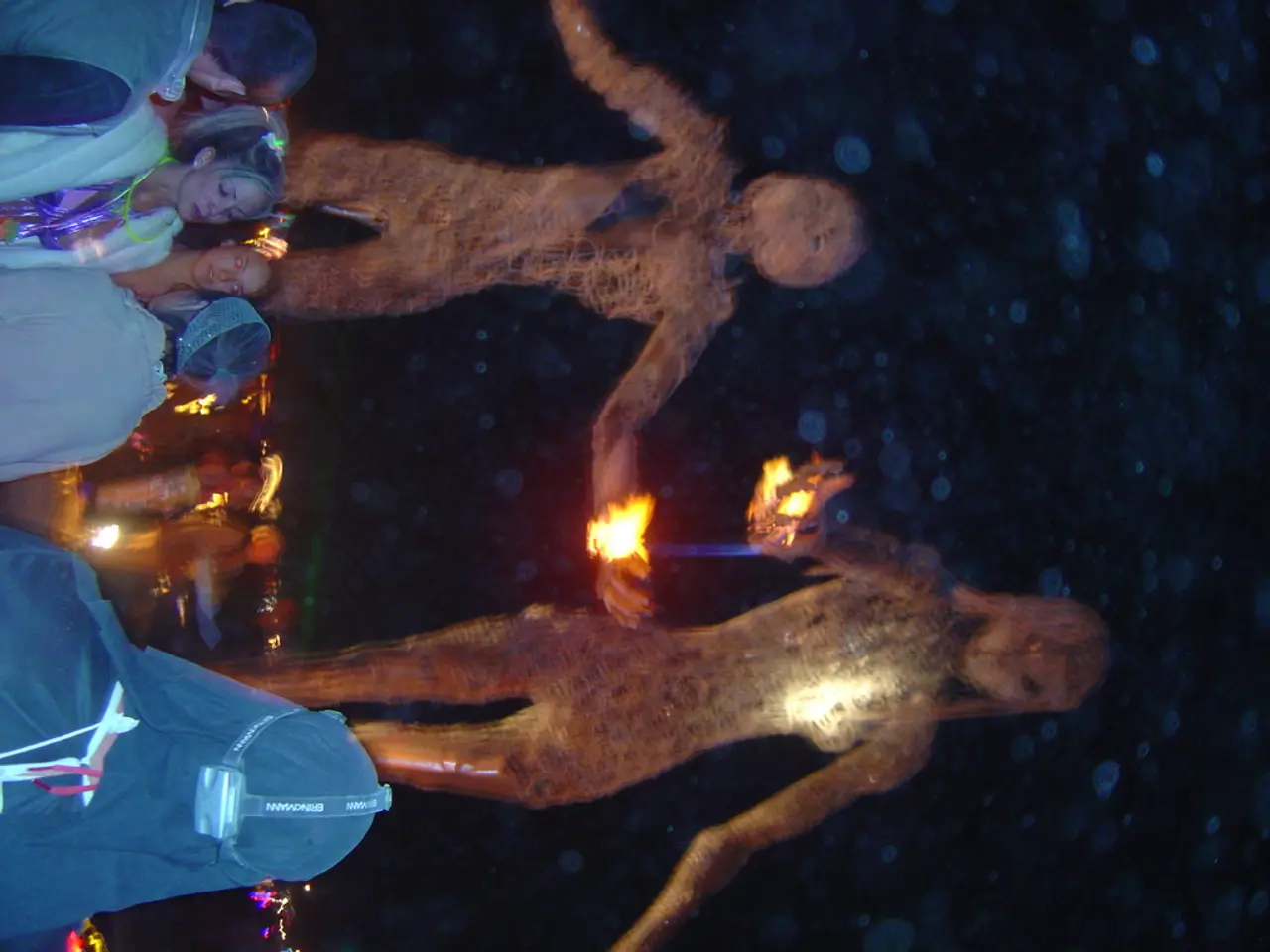Unconscious Mind: Its Nature and Influence on Our Lives
In the complex labyrinth of our minds, there exists a realm that remains largely hidden from our conscious awareness - the unconscious. This enigmatic part of our psyche, while operating silently in the background, plays a pivotal role in shaping our thoughts, emotions, and actions.
The unconscious, as first theorised by Sigmund Freud, the father of psychoanalysis, is a repository of feelings, thoughts, urges, and memories that are outside of our consciousness, often due to repressed trauma or emotional conflict. It is made up of data we do not know and are never aware of knowing, such as neural impulses related to barometric pressure, gravity, temperature, and blood pressure.
On the other hand, the conscious mind contains thoughts, memories, feelings, and desires that we can access at any time. However, it is primarily composed of 95% memories coming from both the unconscious and the subconscious, with most of the information in the present moment coming from these sources.
The subconscious, the part of our mind that is between the conscious and the unconscious, stores information that we can access through the efforts of our conscious mind. It also contains data that has been automated, such as how to use a fork and knife, allowing us to perform everyday tasks without conscious thought.
Understanding the unconscious can help us make healthier choices, develop better self-awareness, and overcome limiting patterns or behaviors, leading to profound self-discovery and growth. Unconscious influences on behavior can manifest without our conscious awareness, guiding our actions in ways we might not realize.
Common ways to access the unconscious mind include introspection, therapy, mindfulness techniques like meditation, and exercises in observing thoughts and emotions non-judgmentally. These methods help bring latent or repressed content into conscious awareness, allowing us to engage with hidden memories, impulses, or emotional triggers that typically influence behavior without our direct knowledge.
Psychotherapeutic approaches, especially psychoanalysis, aim to uncover suppressed memories or motives by exploring latent content that lies beneath conscious thought. Practices such as deep breathing, meditation, and focused attention help quiet the conscious mind, enabling unconscious material—like hidden desires or fears—to surface gently without resistance.
Simply observing your thoughts, feelings, and sensations without reacting can reveal subconscious patterns and pain points, leading to self-discovery and emotional healing. This method involves noticing uncomfortable memories or emotions as they arise and experiencing them fully without avoidance.
The benefits of accessing the unconscious mind in daily life are significant. It enhances self-awareness by revealing automatic biases, unresolved emotions, and deep-seated fears that shape our behavior unknowingly. It aids in emotional regulation by bringing repressed feelings to light, allowing conscious processing and reducing unhelpful reactions such as anger or anxiety.
It improves decision-making by integrating insights from unconscious motives and memories, which can help overcome automatic negative patterns or distortions in thinking. Lastly, it fosters personal growth and healing by identifying and releasing subconscious blockages, leading to greater mental ease, confidence, and resilience.
Regularly engaging with the unconscious mind through meditation, mindful observation, and therapeutic exploration can create a deeper understanding of oneself and improve mental health, emotional balance, and everyday functioning.
However, it is essential to remember that the unconscious also employs defense mechanisms, such as repression, denial, projection, and rationalization, to protect itself from anxiety or emotional conflict. These mechanisms can sometimes lead to inaccuracies in recall or repressed memories being "recovered" during therapy.
In conclusion, the unconscious mind, while often shrouded in mystery, is a vital component of our mental landscape. By consciously exploring and understanding its workings, we can unlock a pathway to self-discovery, personal growth, and improved mental health.
- The unconscious, as theorized by Sigmund Freud, is a reservoir of feelings, thoughts, urges, and memories that bypass our consciousness, often due to repressed trauma or emotional conflict.
- Practice mindfulness techniques like meditation to access the unconscious mind, bringing latent or repressed content into conscious awareness and engaging with hidden memories, impulses, or emotional triggers that influence behavior.
- Psychotherapeutic approaches, such as psychoanalysis, aim to uncover suppressed memories or motives by exploring latent content that lies beneath conscious thought, helping us make healthier choices and overcome limiting patterns.
- Simply observing thoughts, feelings, and sensations without reacting can reveal subconscious patterns and pain points, leading to self-discovery and emotional healing, and fostering personal growth and healing by identifying and releasing subconscious blockages.
- Regularly engaging with the unconscious mind through meditation, mindful observation, and therapeutic exploration can create a deeper understanding of oneself, improve mental health, emotional balance, and everyday functioning, yet it's important to remember that defense mechanisms can lead to inaccuracies in recall or repressed memories being "recovered" during therapy.




